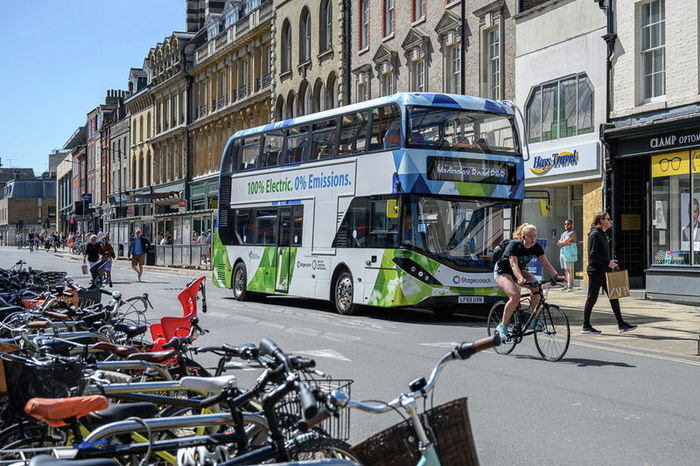University back ‘town vs gown’ congestion charge plan
The University conditioned its support on the improvement of public transport and mitigations for those with complex travel needs

The University of Cambridge has indicated its agreement with controversial proposals to introduce a congestion charge within the city.
In a statement released on Monday, the University laid out its support for the planned council measures while highlighting that its support was conditional on the prior implementation of better public transport measures in the city.
The planned congestion charge scheme would establish a £5 road charge for any motor vehicles entering, leaving or driving within the city of Cambridge. The money raised from this fee is intended to be used to pay for a £50 million expansion of the city’s bus network, in addition to travel improvements for cyclists and pedestrians.
Plans for the ‘Sustainable Travel Zone’ were proposed by Greater Cambridge Partnership as part of a package to improve public transport, reduce congestion and lower emissions throughout the city. However, since its announcement, the congestion charge has faced backlash from both residents and unions within Cambridge.
The statement, published by Pro-Vice-Chancellor for strategy and planning David Cardwell, laid out that the measures would help the university “deliver against their climate ambitions” to produce “an integrated transport solution” to the “biodiversity crisis and social inequalities that the region faces”.
While the “vast majority” of students and staff use sustainable methods of transport, this number is reduced for those living and travelling from outside of Cambridge. It was noted in feedback from university staff that a “number will experience significant impact” in particular those with “complex travel needs on lower incomes.”
The University’s support was conditional on a number of measures including significant improvement in the frequency, affordability and sustainability of public transport, and clear mitigation measures for those who may suffer complex travel needs on lower incomes.
The statement was released in the wake of a consultation by the Greater Cambridge Partnership. More than 23,000 people gave their views about the proposed plans by the consultation’s deadline at the end of last year.
Speaking to The Guardian last year, Neil McArthur, vice-chair of the Cambridgeshire Residents Group, argued that the proposal favours University students and dons while disadvantaging local residents as “the student population and the Cambridge dons won’t suffer…They probably live and work within the city, they can walk or cycle wherever they want to go.”
Other proposals as part of the scheme include a flat £1 bus fare in the city, and a £2 fare for longer journeys. Students in the city already pay the £1 fare on the U-bus, but access to this discount would be widened out to local residents on the scheme, which is set to be introduced by 2027/28.
 News / Uni partners with controversial Hong Kong university2 April 2025
News / Uni partners with controversial Hong Kong university2 April 2025 News / Hundreds of jobs to be cut at Cambridge University Hospitals1 April 2025
News / Hundreds of jobs to be cut at Cambridge University Hospitals1 April 2025 Comment / More Cambridge students should study abroad 1 April 2025
Comment / More Cambridge students should study abroad 1 April 2025 News / Caius clock hand returned nearly 100 years after student prank31 March 2025
News / Caius clock hand returned nearly 100 years after student prank31 March 2025 Lifestyle / A Goodchild’s Cambridge Confessional: Volume 23 April 2025
Lifestyle / A Goodchild’s Cambridge Confessional: Volume 23 April 2025



